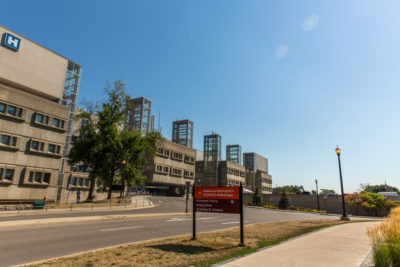The pediatric outpatient clinic for Respiratory Syncytial Virus (RSV) prophylaxis immunization is located within the 2G Clinic. Ontario’s Respiratory Syncytial (RSV) Prophylaxis for infants program is a Ministry-managed program under the Ontario Public Drug Programs (OPDP) Division of the Ministry of health and Long-term Care.
Our philosophy is family-centered care. We strive to provide the best care possible.
Care We Provide
Conditions We Treat
Respiratory Syncytial Virus (RSV) is a common virus. In most people RSV causes a mild illness such as a cold. However, RSV can make some newborns and young children very sick. RSV spreads easily from person to person, by contact or when someone coughs and sneezes. The virus can live on hands and objects for up to 6 hours.
Services We Provide
Health teaching is a key component in the RSV clinic setting to promote the prevention and spreading of the Respiratory virus. The first signs of RSV are runny nose, fever, and sneezing. The more serious signs are a bad cough, trouble breathing, and fast breathing.
What to Bring
- Your child’s Health Card. The Ministry of Health and Long Term Care requires us to validate your health card at every clinic visit
- Any relevant test results or letters from your child’s doctor or pediatrician.
- Any notes or questions that you may have
- List of current medications and allergies
- Immunization card
When you arrive, please check-in at the reception desk. The Business Clerk will register you in the electronic system so that your team will know that you have arrived.
Staff will do their best to make sure you are seen at your appointment time. If you feel you have been waiting a long time please speak with a business clerk at the reception desk.
Note: If your child is ill with any antibiotic resistant organism, MRSA, a communicable disease (such as Chicken Pox), or a respiratory infection, please notify reception staff prior to your scheduled appointment.
Team Members
Medical Director
Responsible for working with the RSV team to set the clinic days during the RSV season, as well as to determine when the end of season for the region will occur. The medical director is also available to address any clinical concerns that arise during clinic, as well as to work with the RSV consultant to determine patient eligibility. The medical director works with the team to ensure all children who qualify for immunization with Palivizumab receive their immunization as close to home as possible.
RSV Consultant
Works in collaboration with the Ministry of Health advisor, and Ontario Provincial adjudicator.
Nurse Coordinator
Responsible for the establishment and management of RSV immuno-prophylaxis program. This involves:
- The identification of RSV as per the Ontario Ministry of Health criteria guidelines
- Appropriate referrals
- Ministry of health enrollment
- The tracking process
- RSV immune-prophylaxis clinic management
- Palivizumab and intervention management
- Education for families and health care providers
Caress Registry Registered Nurse
Collects information on the use of Palivizumab by the babies in the RSV Clinic who are at high risk of RSV infection, and to collect data on patient outcomes.
Referral Process
Referrals can be faxed directly to the clinic.
Urgent Referrals: The clinics are not for emergencies. If your child needs to be seen on an urgent basis, please contact your family doctor or go to your local emergency department.

